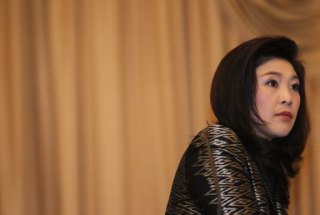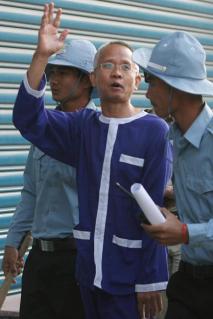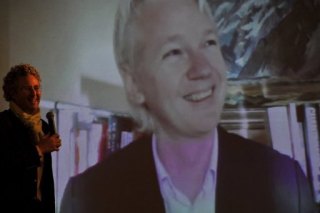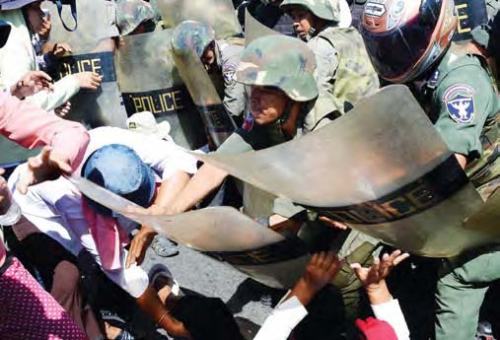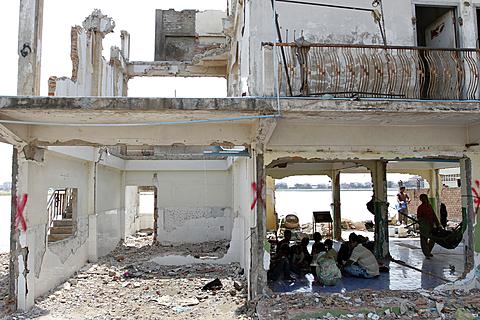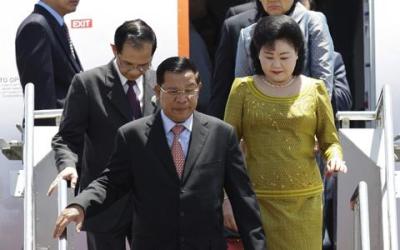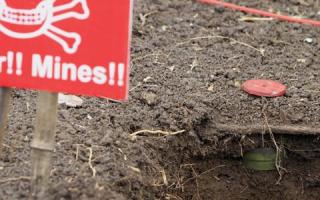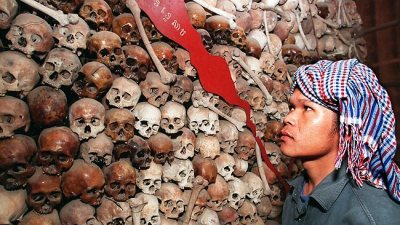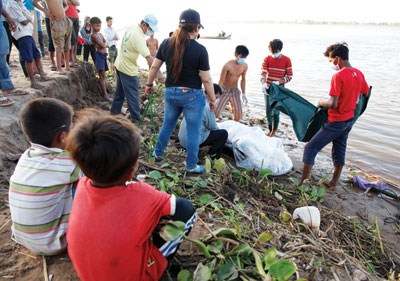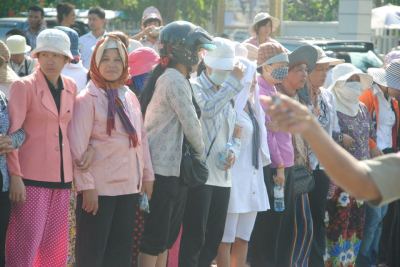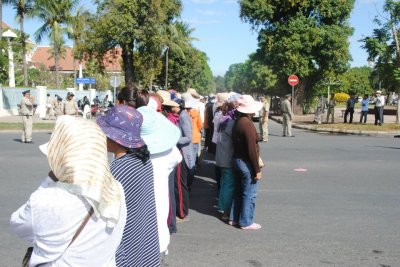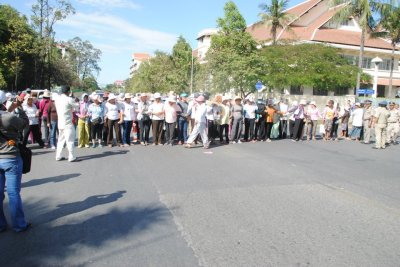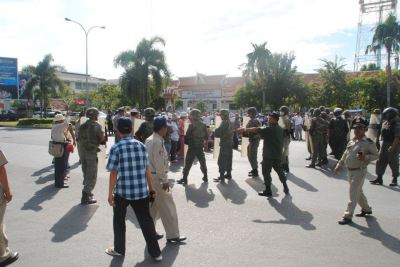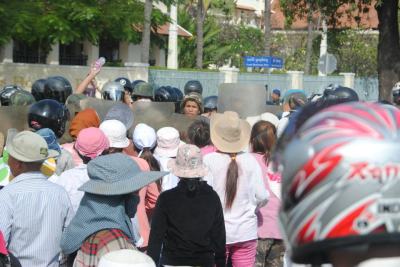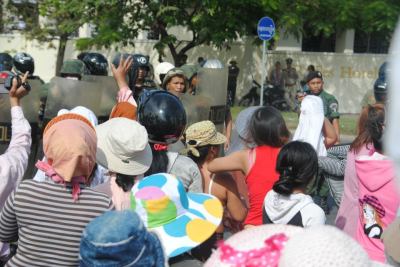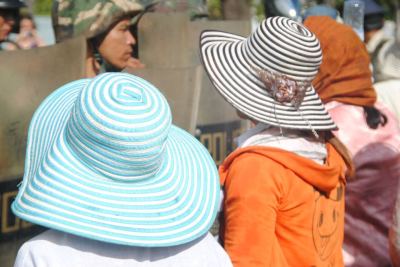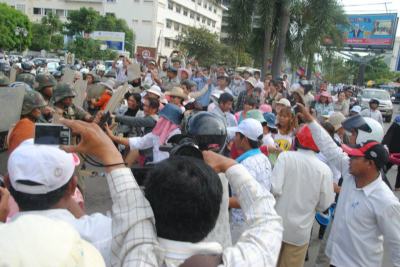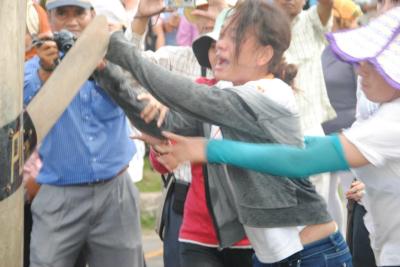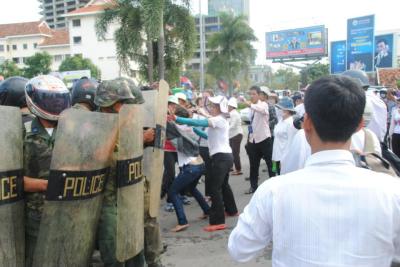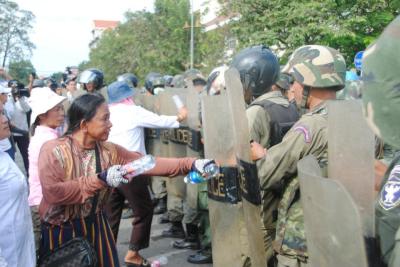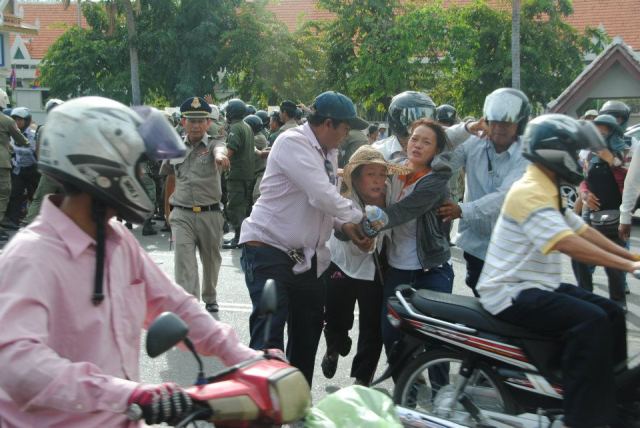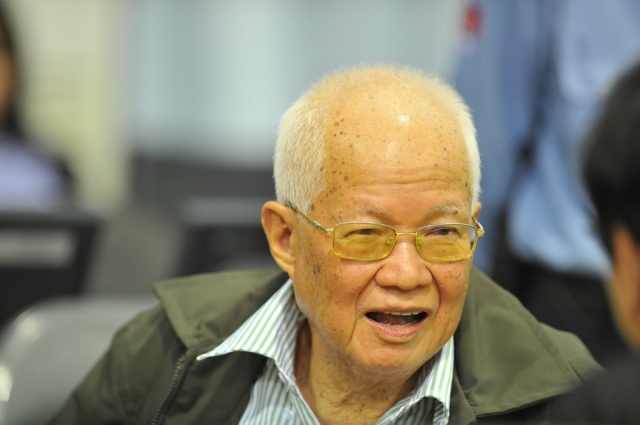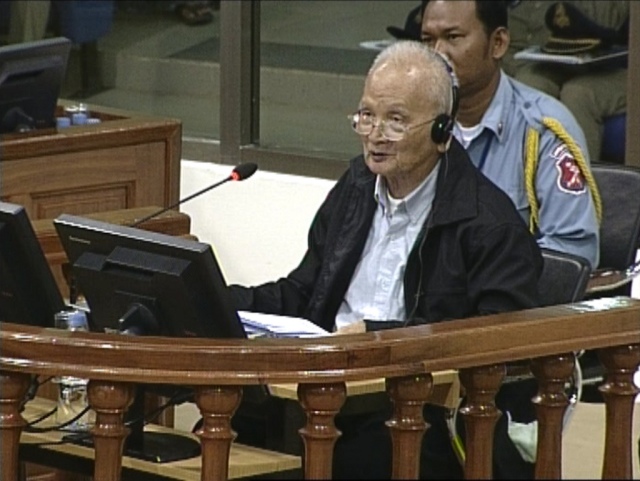 |
| Former Khmer Rouge second-in-command Nuon Chea, former President Khieu Samphan and former Foreign Minister Ieng Sary (L-R) attend their trial at the Extraordinary Chambers in the Courts of Cambodia (ECCC) on the outskirts of Phnom Penh, November 21, 2011. (Photo: Reuters) |
Monday, 28 November 2011
Robert Carmichael, VOA | Phnom Penh
“I wasn’t an effective decision maker; there was chaos in this country at the time and we had no control over this.”
The Khmer Rouge tribunal in Cambodia wrapped up its opening hearings last week. Prosecutors laid out their case against three individuals accused of genocide, war crimes and crimes against humanity that were committed while serving in top leadership positions in the movement.
It took the prosecution one and a half days to put its argument against the Khmer Rouge leaders to the court.
International co-prosecutor Andrew Cayley said the leaders of the Communist Party of Kampuchea – or CPK – believed they had discovered the secret to waging a successful communist revolution, a solution that other revolutions had failed to grasp.
“The accused believed that previous communist revolutions had failed because class enemies had infiltrated and corrupted those revolutions. The solution the accused seized upon was simply to liquidate all class enemies in their entirety,” Cayley stated.
Cayley went on to explain who those perceived enemies were, and how that drove the mass killings that have come to characterize the time. “The truth, Your Honors, is that the persons the accused considered to be enemies of the CPK were an ever evolving and ever expanding group,” he said.
In the days immediately following the Khmer Rouge’s victory in 1975, enemies were those people associated with the defeated Lon Nol regime, as well as students, teachers, doctors and lawyers, and the residents of urban areas.
By the time the movement was driven from power in 1979, its paranoia meant it saw those enemies everywhere, even – and especially – deep within its own ranks.
In the process the Khmer Rouge purged vast numbers of its own people too.
“And as the DK regime progressed and the paranoid leaders of the CPK convinced themselves that their failures must be due to the CIA, KGB or Vietnamese agents, the focus of their enemy witch hunt shifted from class enemies to internal enemies who had infiltrated the ranks of the party,” Cayley explained.
For their part the defendants and their lawyers described the prosecution’s case as untrue, a fairytale full of generalizations, and “like a novel by Alexandre Dumas”, the creator of the Three Musketeers.
Eighty-five-year-old Nuon Chea, who read for 90 minutes with surprising vigor, showed why he is considered the movement’s chief ideologue, with a lengthy diatribe against the Khmer Rouge’s perennial enemy Vietnam.
Cambodia’s eastern neighbor, he told the court, had long plotted against his nation and wished to exterminate its people.
Nuon Chea said he joined the revolution to defend Cambodia.
Patriotism was a theme taken up by former head of state Khieu Samphan as well. He told prosecutors he had became interested in communism while studying for his doctorate in economics in Paris.
“Today you may see it as a joke. However I shall remind you that at that time communism is the one movement that gave hope to millions (of) youths around the world,” Khieu said. “What I actually wanted at that time is the best experience for my country.”
Khieu Samphan also talked about the huge bombing campaign that the United States illegally unleashed on Cambodia in 1969.
The bombing is widely considered to have propelled support for the Khmer Rouge, but it falls outside the strict timeline that the politicians prescribed for the court.
“Could you imagine what my country faced after such a bloody killing? Regardless (of whether) you like or dislike it, the majority of Cambodian people gave their support to us for our opposition against the Lon Nol regime,” Khieu stated.
Former foreign minister Ieng Sary spoke only briefly to complain that the court would not take into account the royal pardon and amnesty he had been granted in 1996 in order to get him and thousands of followers to defect.
The three leaders are accused of genocide, war crimes and crimes against humanity; subsumed within that list are the crimes of murder, extermination, enslavement, imprisonment, torture, persecution and willful killing among others.
In essence they are on trial for devising the policies that led to the deaths of around two million people between 1975 and 1979.
They deny all charges.
The response from Cambodians watching proceedings varied from sympathy for the elderly defendants, to outrage that they continued to deny any responsibility for what took place on their watch.
Tribunal observer Clair Duffy, who monitors proceedings for the Open Society Justice Initiative, says the prosecution and the defense performed well.
And while Nuon Chea and Ieng Sary failed to address the essence of the allegations against them, Khieu Samphan did respond to the allegations the prosecution made, and attacked some of its evidence.
Duffy says the week has allowed a glimpse into the tactics the defendants will employ.
Nuon Chea’s statement focused on the broader political landscape of the time, and the bitter relations between the communist parties of Vietnam and Cambodia.
“For Khieu Samphan his line was: Even though I was in this role I wasn’t a member of the Standing Committee; I wasn’t an effective decision maker; there was chaos in this country at the time and we had no control over this,” Duffy explained.
The trial of the three leaders has been divided into a series of mini-trials, and last week saw the start of the first of those. It will largely examine alleged crimes against humanity in the context of the Khmer Rouge’s forced movement of people.
That charge refers to two events in 1975, when Pol Pot’s troops took control of Cambodia and forcibly evacuated every city and town. Later that year they forced vast numbers to move across the country into work camps.
The prosecution says tens of thousands died during those moves, which turned out to be the first in a series of horrific experiences. In his opening statement Cayley put the scale of what happened in context.
One in four Cambodians died, Cayley said. “A loss of life unknown to any nation since the slaughter of all adult men and the enslavement of the women and children of the island of Milos by the Athenian state 2,400 years ago. When judged in relative terms by the proportion of a national population who died or were murdered, the scope of the human catastrophe unleashed by these accused on this country has no parallel in the modern era.”
The court is scheduled to start hearing evidence on December 5.
